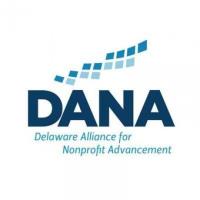Survey Reveals Delaware Nonprofits at Risk Due to Federal Funding Issues
WILMINGTON – Delaware nonprofits serving over half-million residents could face
immediate and significant consequences should attempts to freeze, reduce or eliminate
federal funding succeed, according to a recent survey of organizations across the state.
DANA, the Delaware Alliance for Nonprofit Advancement, conducted an online survey
earlier this month of member organizations and federal grant recipients. DANA received
more than 300 completed responses representing nonprofits throughout the state such as
senior centers, childcare facilities, shelters, addiction programs, and the arts.
In the wake of last month’s directive by the federal Office of Management and Budget to
freeze funding and the ensuing court challenges to block implementation, nonprofit
organizations have struggled to gain clarity and stability regarding the situation. Nearly 90
percent of survey respondents indicated that the halt on grants and loans is extremely
concerning to their operations.
“Nonprofits touch the daily lives every Delawarean, providing vital assistance to at-risk and
vulnerable populations,” said DANA President and CEO Sheila Bravo. “They serve meals
to seniors, provide counseling to people facing mental health and substance use issues,
protect children from abuse, offer shelter and support to the unhoused, and help sexual
assault survivors deal with their trauma.
“The recent developments in Washington, D.C., have created uncertainty, confusion and
worry among nonprofits about both their long-term planning and their short-term
operations. For many Delaware nonprofits, federal funding is a lifeline that allows them to
continue serving our residents. Any decrease, delay or elimination of these funds could be
catastrophic.
“The responses to this survey are clear: Delaware nonprofits are concerned about their
future and their ability to continue aiding families across our state,” Bravo added.
“Several of our members have indicated that they already are looking at staff layoffs, shuttering
programs or even closing their doors entirely. We hope that Delawareans will understand
the very real impact these potential cuts will have on services they and their neighbors rely
on, and the need to support these nonprofits.”
According to IRS tax data for 2021, Delaware-serving nonprofits receive more than $1
billion in local, state, and federal government grants. These funds come from a variety of
sources, such as pass-through funds from the State, counties or local municipalities, or
directly from the federal government.
More than 80 percent of survey respondents said that a funding freeze would have a
notable fiscal impact, with 62 percent indicating that the effects would be immediate. Of
the organizations that said they would take a fiscal hit if federal funding was halted, about
half provided dollar amounts of that impact, totaling $229 million in direct federal funding
and federal pass-throughs.
DANA has partnered with Delaware Community Foundation, United Way of Delaware, and
Philanthropy Delaware to provide resources to the nonprofit community and residents
impacted by this federal action and other executive orders, For example, the United Way
has poised their Delaware 211 as a resource.
"At 211, we know how tough it can be when federal funding and policy changes create
uncertainty for our partners,” said United Way of Delaware President and CEO Michelle
Taylor.
“Collaborating with the Delaware Community Foundation, Philanthropy Delaware
and DANA strengthens our ability to provide critical support to individuals and families
when they need it most. At times like these, 211 is a lifeline. We connect people to
essential services and we offer real-time guidance and support. Whatever challenges
come our way, 211 is committed to standing by our partners and the people we serve.”
Respondents also shared examples of the impact that the funding issues could have on
the residents they serve, including:
• Reduced access to vital services for health, housing, food, security, education, arts
and culture.
• Mental health and trauma experienced by those who are losing access to services.
• Fear and harassment of immigrants, whether documented or undocumented.
• Loss of housing.
• Learning loss.
• Inability to get a job.
Some groups shared specific examples of how their operations would be hampered. The
Modern Maturity Center, which serves seniors in Kent County, indicated that they would
not be in a position “to provide adult day care services, caregiver resource services, or
senior employment opportunities. The administration of the SNAP program will have to be
discontinued.” Additionally, more than 2,000 seniors who rely on food through the
Nutrition Services program would no longer receive those meals.
Prevent Child Abuse Delaware determined that they likely would have to lay off workers,
scrap a prospective partnership with state agencies on infant early childhood mental
health consultations, and cease community programs building protective factors for at-
risk families.
As an organization dedicated to strengthening and elevating Delaware’s nonprofit sector,
DANA continues to gather and share information to help these organizations navigate this
rapidly evolving landscape.


